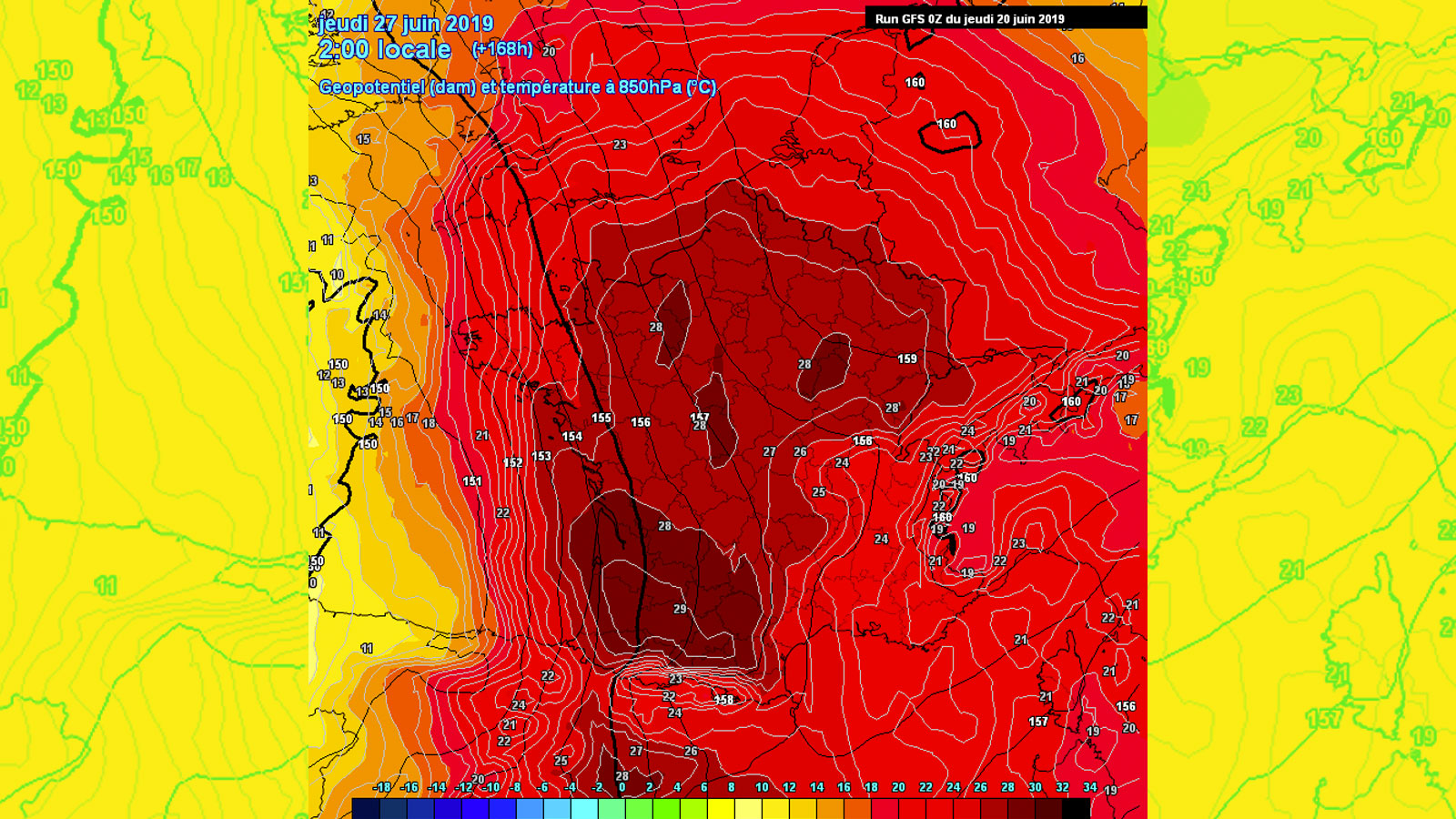This post was updated on June 27.
Wednesday marked the start of a major heat wave across Western Europe, with hot air moving north from the Sahara prompting record-setting high temperatures in France, Germany, and Poland.
Even the map is horrified by the region’s current weather. A graphic displaying temperatures across Western Europe resembles a skull with a gaping red mouth:
A gauche carte des températures à 1500m prévues par GFS. A droite le cri de Munch.
Jamais vu ça en 15 que je regarde des cartes météo #canicule pic.twitter.com/RIJTXiCUh1— Ruben Hallali (@korben_meteo) June 20, 2019
In Paris, where Wednesday’s temperatures exceeded 104 degrees F, schools are closed, exams have been postponed, high-emission vehicles (about 60 percent of cars in the region) have been banned from the roads to prevent smog buildup, fire hydrants have been converted into fountains, and cooling rooms have been set up to give people a way to cool off.
In Spain, firefighters are struggling to contain wildfires that have already burned over 12,000 acres. The source of the blaze is uncertain, but officials say it likely started when a pile of manure self-ignited in Thursday’s 100 degree heat.
Poland wasn’t only setting new temperature records on Wednesday — the nation also saw higher levels of energy consumption than ever before, with people switching on fans and air conditioning units to try to stay cool.
In Germany, the 103 degree heat caused highway speed limits to be reduced when road surfaces started deteriorating. Some Germans resorted to slightly unconventional methods to beat the heat, choosing to ditch their clothing entirely. One man was pulled over for driving his Vespa completely in the nude, a local German newspaper reported a streaker in a grocery store’s frozen food aisle, and young women sunbathing topless in a Munich park sparked a debate on public nudity in the city council.
This week’s weather is being compared to the 2003 heatwave that was responsible for over 30,000 deaths across Western Europe — mostly of the sickly, elderly, and homeless — and estimated financial losses of over 13 billions euros ($14.8 billion).
The only reported casualties of the heat so far are three elderly French people who died after suffering cardiac arrests while swimming today, prompting officials to issue statements warning the public of the dangers of jumping into cold water when it’s so hot.
Unfortunately, this is just the start — the heatwave is expected to continue through next week, and governments are preparing for water shortages, increased risk of fires, and an influx of hospitalizations from dehydration and overheating as temperatures creep higher in the coming days.
Climate scientists have said that the severity of this heatwave, as well as the overall trend of more frequent and intense heatwaves in recent years, is likely due to climate change.



